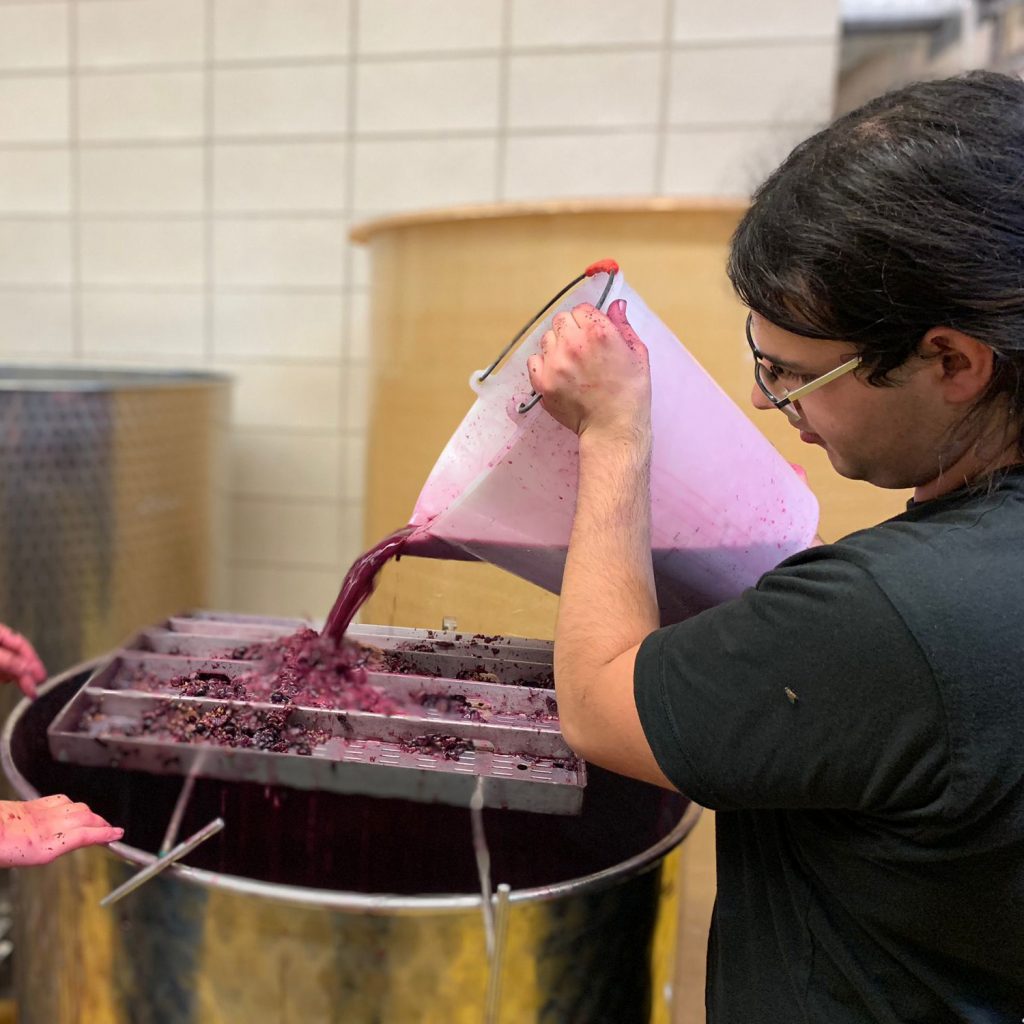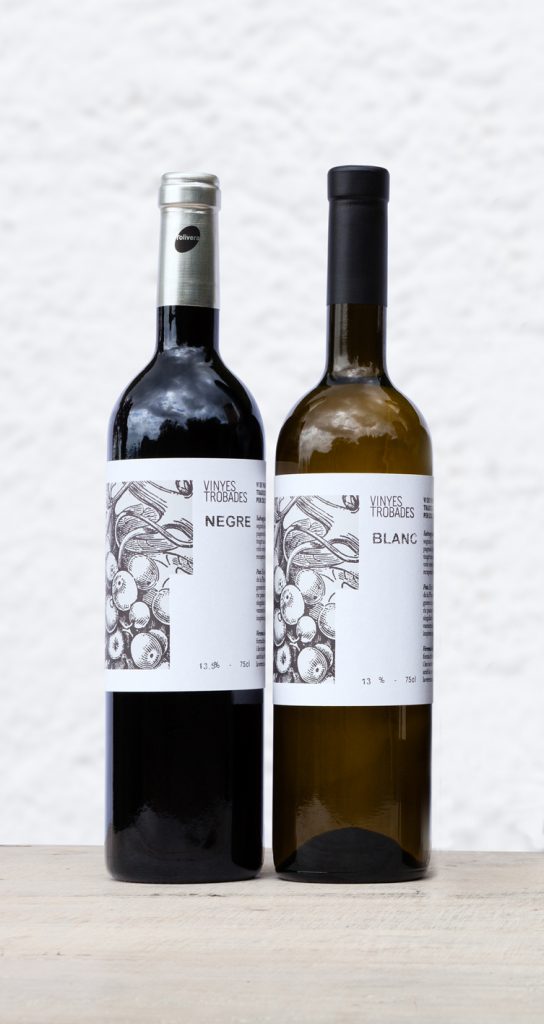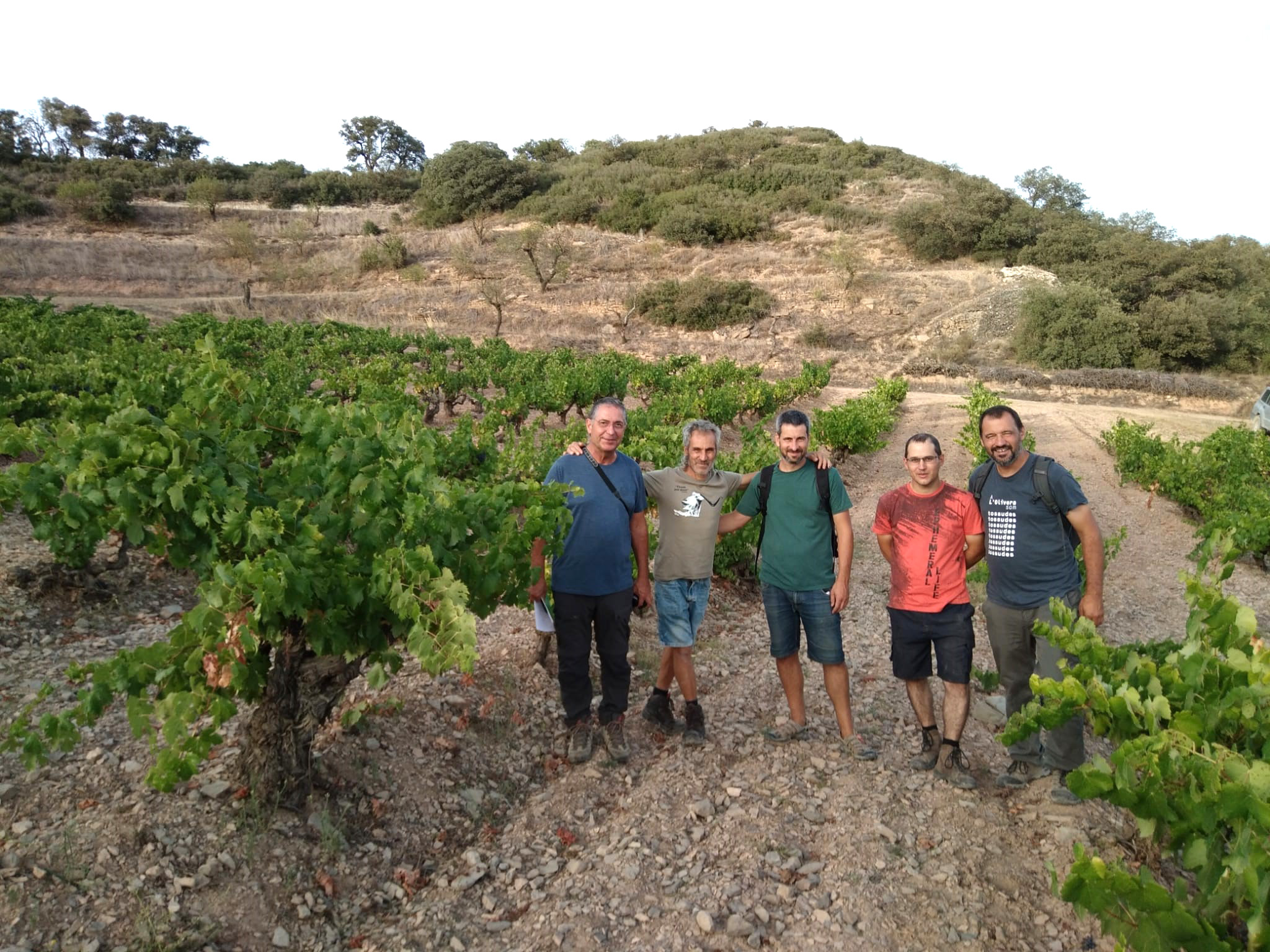Trobat was a very characteristic red grape variety of the Lleida region, currently in sharp decline and only surviving in a few vineyards dedicated to self-consumption. In 2007, with the creation of the Cultura Trobadesproject, within the Slow Food Terres de Lleida Association, a project to safeguard and recover native vine varieties in the Lleida demarcation began, with the aim of studying how they could be cultivated and recovered, with the idea that this variety could represent a source of typicity, originality and economic development for existing wine producers. L’Olivera joins this project and, as a result of this collaborative process, different plots of self-consumption vineyards are prospected, most of them in the region of La Noguera, which represent a considerable reserve of biodiversity. It was the persistence and sensitivity of different farmhands (most of whom were elderly) that made it possible to preserve this “living heritage” that deserved to be studied and valued.
During this time, different plots and micro-vineyards were visited, some of the material found was reproduced and the different varieties were progressively identified, both table and wine varieties. In almost 14 years, up to 20 varieties have been characterized and there are still a dozen that have no name or their origin is unknown.
This entire process was accompanied by the support of expert technicians from the Domaine de Vassal, from the French INRA (the world’s largest collection of vineyards), who helped to identify the varieties, using traditional ampelography techniques or molecular analysis.
In order to safeguard all this genetic material, different collections have been created that have served as the basis for successive reproductions. In L’Olivera, for example, we can find up to 500 square meters planted with historical varieties that are being studied, including the Trobat As a result of the grape production that came out of the collections, in 2009, L’Olivera and Slow Food Terres de Lleida decided to start vinifying it, making Vinyes Trobades, which synthesized this recovery process and made the project visible.
All these years of study have focused on the Trobat variety, since it was one of the varieties that appeared most frequently and was practically in disuse. For this reason, in 2019 L’Olivera made Vinyes Trobades only with the Trobat variety, thus being able to assess its typicity and character.


Now, the Denominació d’Origen Costers del Segre is adding efforts to the work done so far and has started an innovative pilot project with the aim of recovering this variety and requesting its inclusion on the list of authorized varieties as regulated by current regulations. This would also allow the productive potential of the DO Costers del Segre to be enriched with a better typification of a variety linked to the territory, which would give the final consumer a more accurate idea of the different “terroirs” of the DO.
Within the framework of this project, financed by the European Union, an agronomic and oenological evaluation of this variety has been carried out and the request for inclusion of the Trobat in the State Register of Varieties has already been made. To do so, the project has the direct participation of other wineries (Codorniu, Cérvoles Celler and Mas Blanch i Jové, together withIncavi as a research center) that have experimentally planted a small number of Trobat vines with material from the collections of Cultures Trobades to evaluate the adaptation of this variety to different subzones of the designation of origin.
L’Olivera has participated in the project “TROBAT-Nous productes per a la DO Costers del Segre. New vinifications of the recovered Trobat varietal in the ecological farmlands of the DO Costers del Segre”. You can find more information here.
Project financed through Operation 16.01.01 of Cooperation for innovation of the Rural Development Program of Catalonia 2014-2020″.


